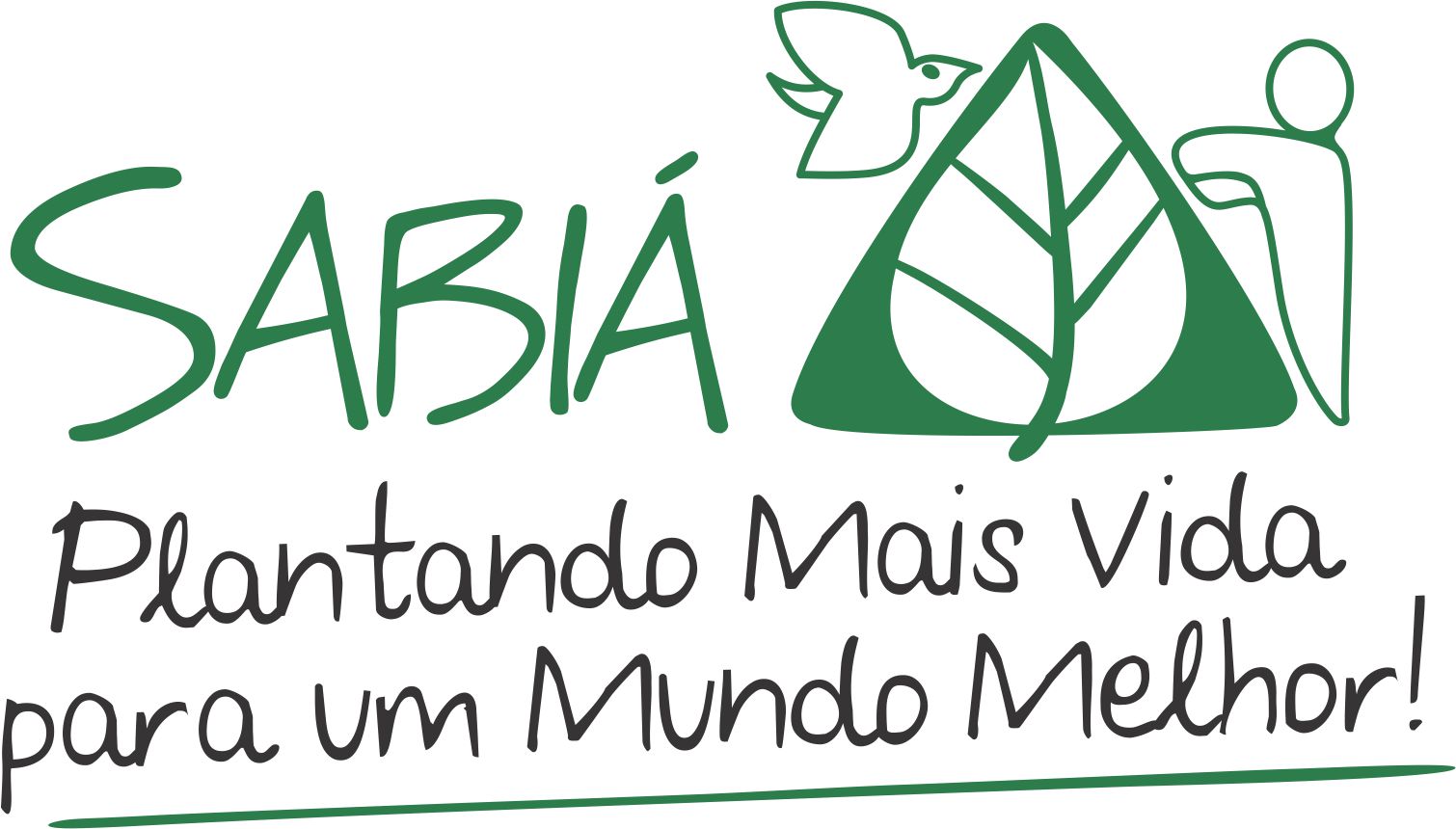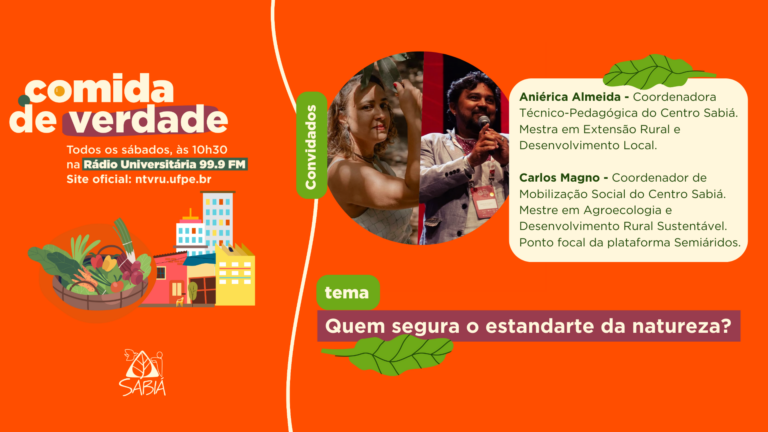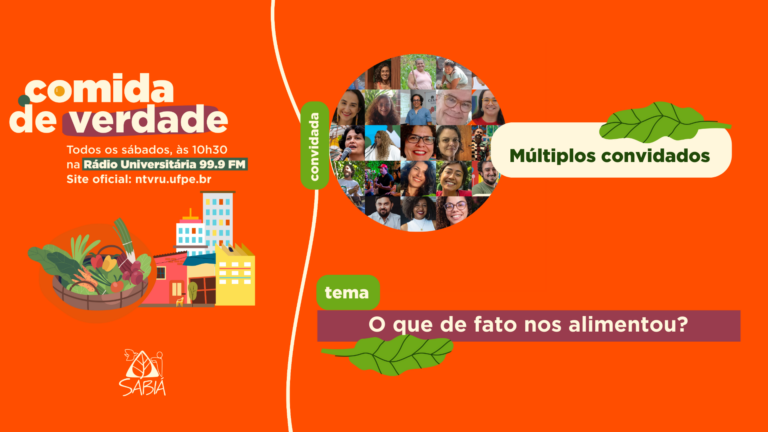Seminar will bring together women farmers from the Articulation of Agroecology and Urban Agriculture of the RMR
On June 20th and 21st the Closing Seminar of the Urban Agriculture Project - Producing Real Food and Generating Quality of Life will take place. The event also marks the 4th Meeting of Women of Urban Agriculture of the Metropolitan Region of Recife.
By Rafael Negrão
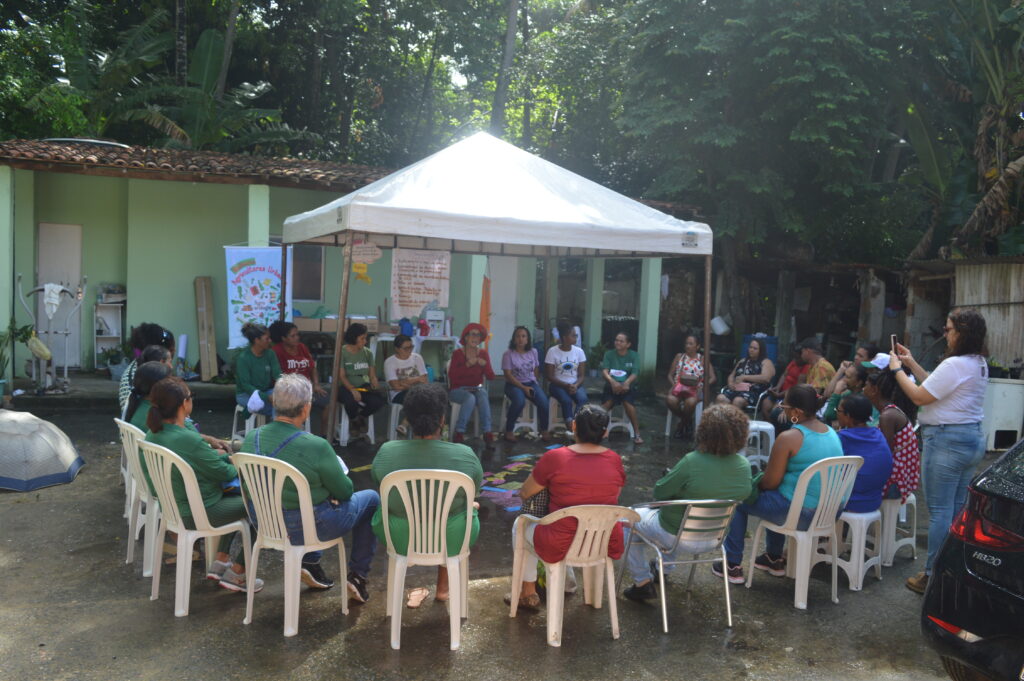
On June 20 and 21, at the SINDSPREV, in Guabiraba, Recife, takes place the “Closing Seminar of the Urban Agriculture Project – Producing Real Food and Generating Quality of Life”. The event also marks the 4th Meeting of Women in Urban Agriculture in the Metropolitan Region of Recife. The initiative and the realization are from the Centro Sabiá, Casa Mulher do Nordeste (CMN), and the NGO FASE, and are the result of a parliamentary amendment by federal deputy Túlio Gadelha, with MISEREOR’s support.
The meeting will count with the participation of 30 project beneficiaries, with two representatives from each garden and productive backyard of 15 communities and territories of the RMR, which are areas covered by the project. Technical advisors, project coordinators, invited researchers, representatives of the World March of Women, the Network of Terreiro Women, the Pernambuco Women’s Forum, the Northeastern Center for Popular Medicine, and the Homeless Workers’ Movement are also participating.
What do the techniques that accompany the project say?
According to the Centro Sabiá’s technical assistant, Simone Arimatéia, the project made possible the agricultural spaces inside the city. “Places that used to be garbage dumps or landfill areas have come to life and started to produce food. In one year of the project, the action implanted several community gardens and carried out the monitoring in places where it was not thought possible to produce food with quality, in the several communities of the Metropolitan Region”, said the technician.
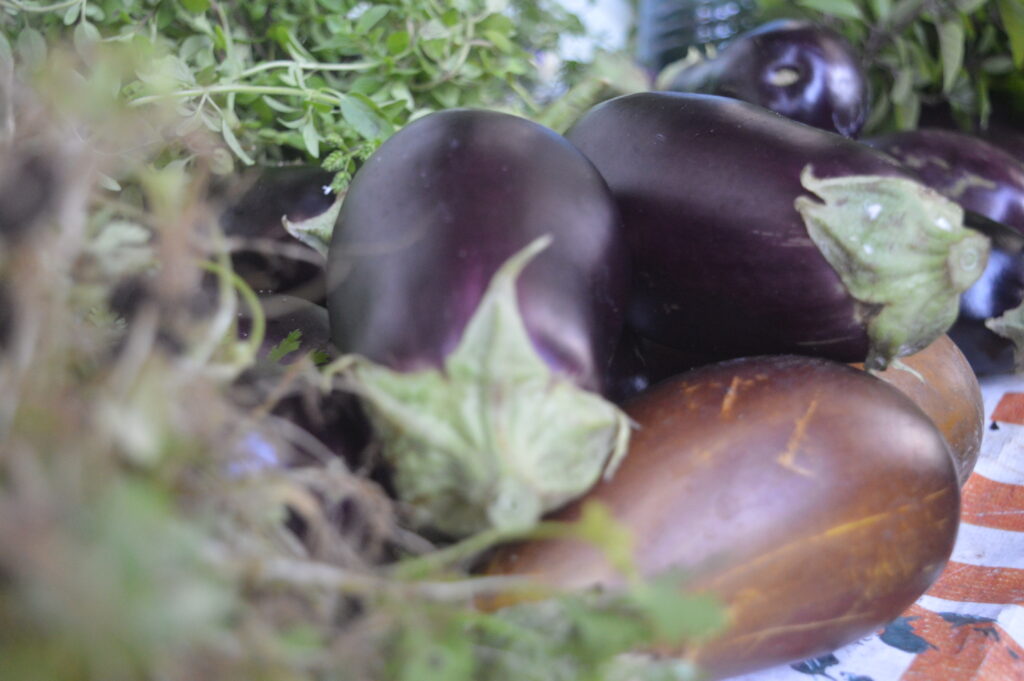
Sarah Vidal, an agronomist, educator, and technical advisor for the Project, revealed that the initiative was very important for the women from the productive gardens and backyards to experience discussion processes that a healthy diet is possible with political empowerment. “Healthy food is connected to a right to the city guaranteed in the Constitution, which is the right to housing, water, sanitation, education, and health, and this process with the women of exchange allowed us to enhance the improvement of their quality of life and the incentive to political incidence”, highlighted the agronomist.
Jackline Gomes, educator and agroecology technician from the Northeast Women’s House (CMN), was also involved in the process, and stressed the importance of the partnerships of the three organizations active in the field and in the defense of agroecology. “The project was very rich, because we strengthened, through technical assistance and workshops, the collective work, and above all, the qualification of spaces that existed for planting, as well as new places were discovered for the possibilities of using urban agriculture made by the various groups and especially by women,” said the educator.
The seminar’s program includes a knowledge fair, with the socialization of each experience of the gardens and backyards, a photography clothesline of the various moments of the project, a dialogue on Feminism and Urban Agriculture, an exhibition by the Northeastern Center for Popular Medicine on the importance of agroecological-based urban agriculture practices for integral health, and the sale and exchange of agroecological products, among other activities.
Nothing found.

